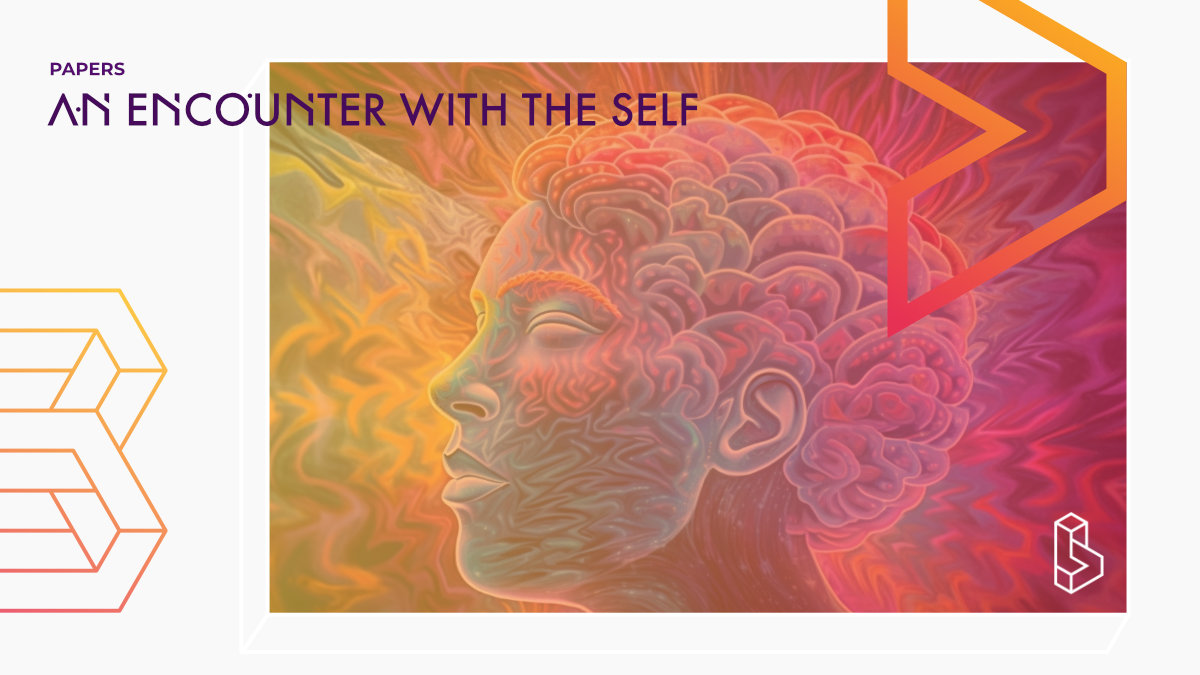In this naturalistic field study (n=36), participants were observed inhaling DMT at home (40-75mg). A semi-structured interview immediately followed the experience to assess the ‘self’. The study reports on five categories of breakthrough experiences, including the onset of effects, bodily, sensorial, psychological, and emotional effects.
Abstract
“Introduction: N,N-Dimethyltryptamine (DMT) is an endogenous serotonergic psychedelic capable of producing radical shifts in an experience that have significant implications for consciousness and its neural correlates, especially given the “disconnected consciousness” suggested by the “breakthrough” DMT state. Its increasing usage and clinical trial indicate the growing importance of a thorough elucidation of the experience’s qualitative content, over and above the phenomenological structure. This is particularly in light of the intensely pervasive effects of DMT occasions in all dimensions of the self, which are often ontologically challenging yet potentially transformative.
Methods: This is the second report on the first naturalistic field study of DMT use exploring its qualitative analysis. Screened, healthy, anonymized, and experienced DMT users were observed during their non-clinical use of the drug at home (40–75-mg inhaled). In-depth semi-structured interviews, inspired by the micro-phenomenological technique, were employed immediately after their experience. This study reports on the thematic and content analysis of one major domain of the breakthrough experiences elicited, the “self”; where analyses of the “other” were previously reported. A total of 36 post-DMT experience interviews with mostly Caucasian (83%) men (eight women) of a mean of 37 years were predominantly inductively coded.
Results: Invariably, profound and highly intense experiences occurred. The first overarching category comprised the onset of effects, encompassing super-ordinate themes including sensory, emotion and body, and space-time shifts; the second category comprised bodily effects, encompassing themes including pleasurable, neutral/both, and uncomfortable; the third category comprised the sensorial effects, encompassing open-eye, visual, and cross-modal and other; the fourth comprised the psychological effects, encompassing memory and language, awareness and sense of self, and time distortions; and the fifth comprised the emotional effects, encompassing positive, neither/both, and challenging experiences. Many further subthemes also illuminate the rich content of the DMT experience.
Discussion: The present study provides a systematic and nuanced analysis of the content of the breakthrough DMT state pertaining to one’s personal and self-referential experiences of the body, senses, psychology, and emotions. The resonances both with previous DMT studies and other types of extraordinary experiences, such as the alien abduction, shamanic and near-death experiences, are also elaborated upon. Putative neural mechanisms and their promise as a psychotherapeutic agent, especially owing to deep emotional impact, are discussed.“
Authors: Pascal Michael, David Luke & Oliver Robinson
Summary of An encounter with the self
DMT is an indolamine and classical psychedelic, which exerts its effects via the 5-HT2A receptor, though downstream GABA, glutaminergic and dopaminergic systems may be modulatory.
DMT’s physiological functions as an endogenous amine are yet to be fully elucidated. However, mounting evidence gestures to a multitude of roles in the peripheral and central nervous system, including possible fulfilment of criteria for being a neurotransmitter and neuromodulator.
DMT’s subjective sphere may be illuminated after continuous infusions based on a pharmacokinetic model, which may reveal entity encounter phenomena with deeply archetypal characteristics, both positive and challenging, that may be productive and difficult to navigate in the therapeutic process.
Find this paper
https://doi.org/10.3389/fpsyg.2023.1083356
Open Access | Google Scholar | Backup | 🕊
Authors
Authors associated with this publication with profiles on Blossom
David LukeDavid Luke is Senior Lecturer in Psychology at the University of Greenwich, where he has been teaching an undergraduate course on the Psychology of Exceptional Human Experience since 2009, and also Honorary Senior Lecturer at the Centre for Psychedelic Research, Imperial College. His research focuses on transpersonal experiences, anomalous phenomena, and altered states of consciousness, especially via psychedelics, having published more than 100 academic papers in this area, including ten books.
Compound Details
The psychedelics given at which dose and how many times
DMT 40 - 75mg | 1x
Linked Research Papers
Notable research papers that build on or are influenced by this paper
An Encounter with the Other: A Thematic Analysis of Accounts of DMT Experiences from a Naturalistic Field StudyIn this naturalistic field study (n=36) participants were observed inhaling DMT at home (40-75mg). The experience was immediately followed by a semi-structured interview to assess the 'other,' one of the major domains of the breakthrough experience. The major themes identified included 94% of participants reporting encounters with other 'beings,' while 100% reported emerging into other 'worlds.' In light of these findings, the neural mechanisms of these otherworldly breakthrough DMT experiences are discussed.

